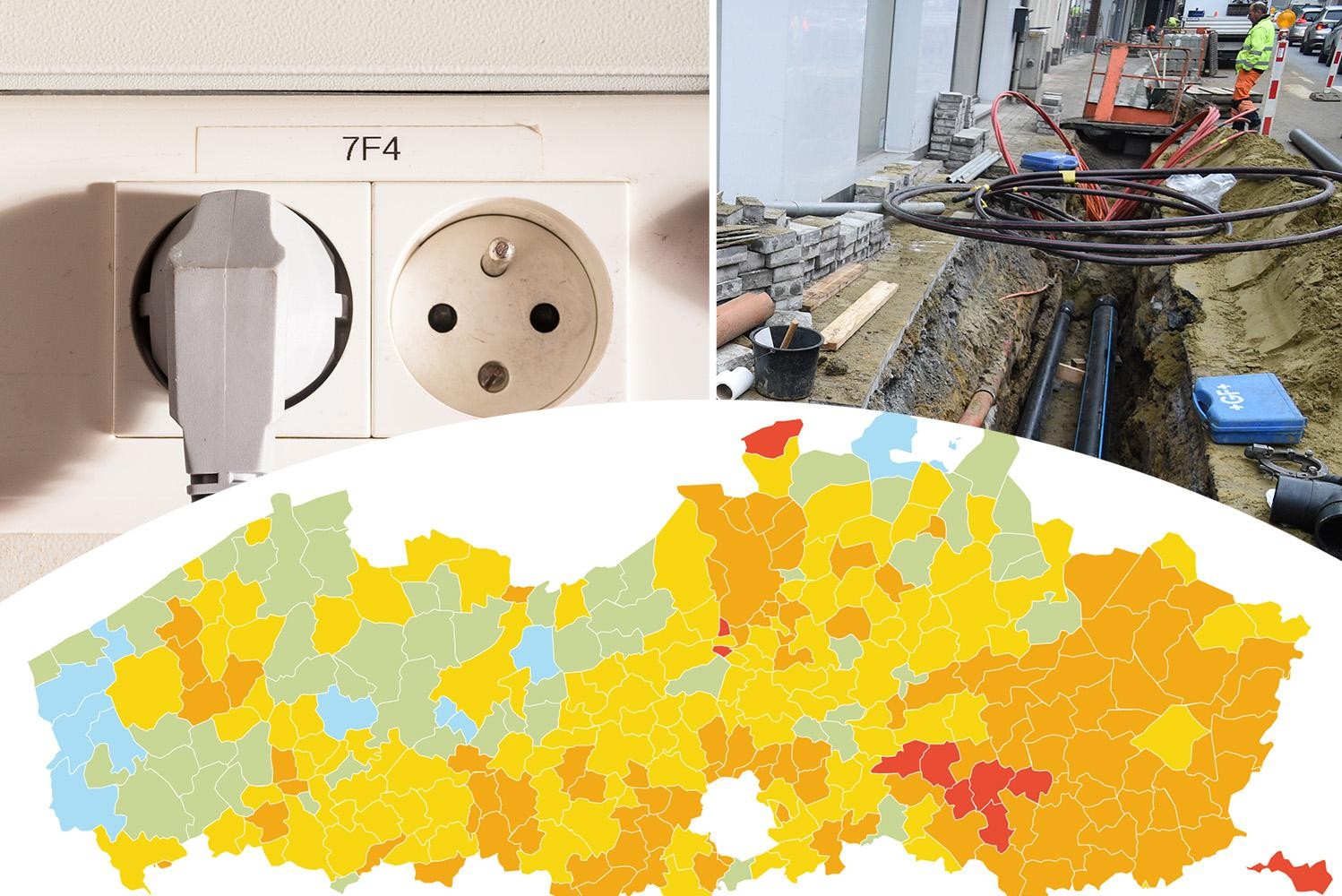–
If nothing is done with our infrastructure, ‘congestion problems’ will arise on the electricity grid in all Flemish municipalities. Grid operator Fluvius is therefore investing 4 billion euros over the next 10 years. View the situation in your municipality here.
–
Solar panels that don’t work, electric cars that you can’t charge or your heat pump that can no longer heat your house. These are scenarios that we prefer to avoid, especially now that we will be making the massive switch to electricity in the coming years. At Fluvius – which manages the low- and medium-voltage grid in Flanders – they realize this and this week they proposed an investment plan of 4 billion euros.
This plan also includes two interesting maps. One map shows how we are doing today. “And just to be clear: that is still very good at the moment,” says spokesman Björn Verdoodt. “In terms of performance, we are in the European top five.”
Nevertheless, the map already shows municipalities that have been given a soft color. “These are municipalities where there are networks that are already slightly closer to congestion.” This does not mean that the light is already going out there, but that there may be peak moments that approach an overload.
You see clusters there, especially in Flemish Brabant. How did that happen? “That has to do with how those nets were built in the past,” says Verdoodt. “In more rural municipalities, the electricity sometimes has to travel more kilometers before it arrives at an electricity cabinet. These are issues that we want to tackle with our plan.”
That will also be necessary, if you look at the map of 2035. Fluvius has calculated a number of scenarios and in the moderate scenario – in which we will therefore heat more with heat pumps and drive electrically – the grid operator foresees many more problems without additional investments. The areas that already got a tan in 2022 will face the heaviest problems.
—


